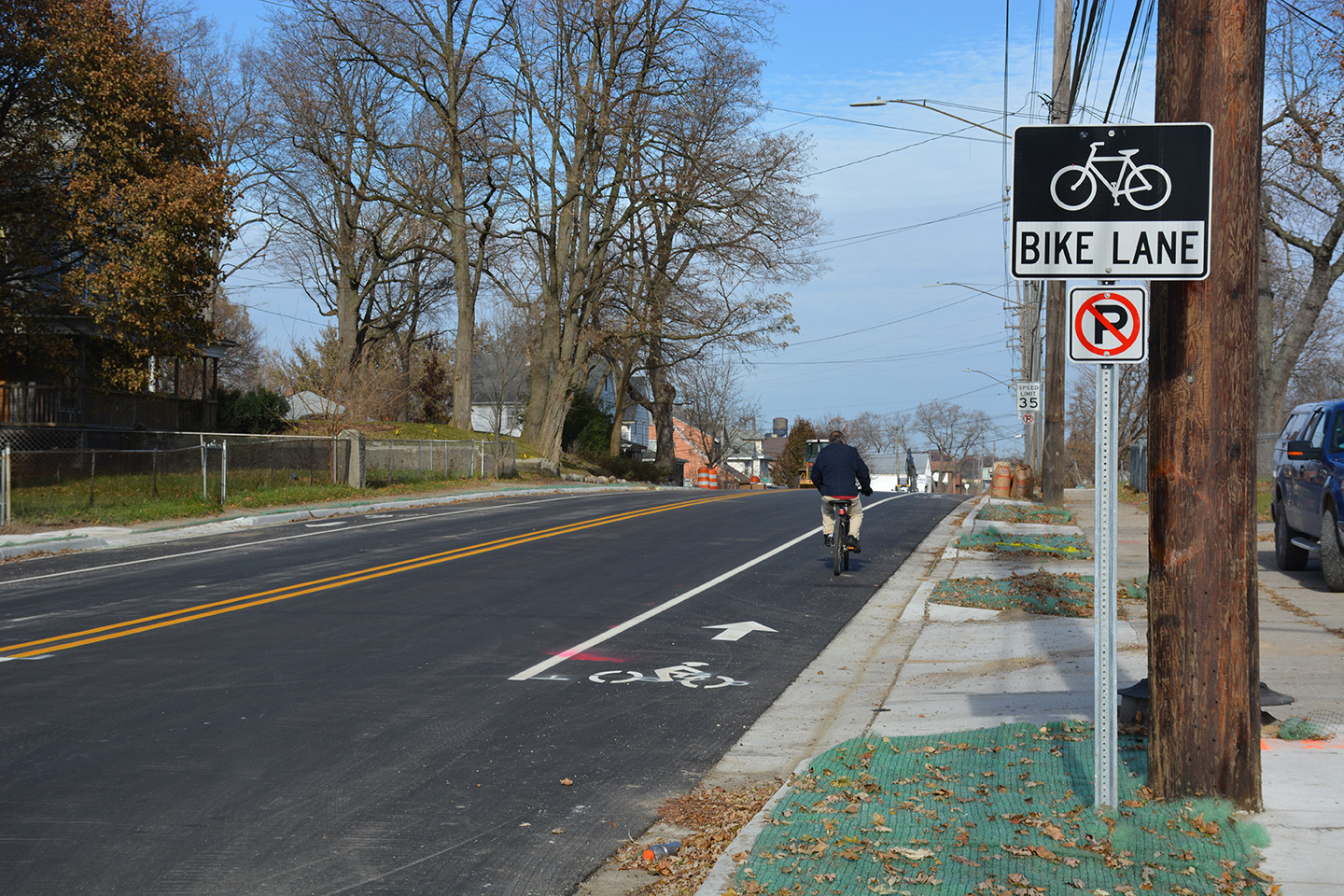OU teams with community partners on bike lane project in Pontiac

Construction crews put the finishing touches on Saginaw Street, north of the downtown, to define on-street bike lanes. The nearly mile-long bike lane is the first of its kind in the City of Pontiac, allowing for bikes and cars to safely share the road.
“The feedback we received from the community helped us to connect best practices in urban planning to the unique needs of our citizens to develop a plan that recognizes Pontiac’s strengths and opportunities, and identified specific steps to help achieve these goals,” said Jennifer Lucarelli, associate professor of health sciences at OU and chairperson for Healthy Pontiac, We Can!
From 2004 to 2014, automobiles struck 306 pedestrians and 183 cyclists in Pontiac, with fatal pedestrian and bike crashes making up one-third of all crashes, more than twice the state average. A recent increase in fatal crashes highlights the need for safety features to protect walkers and bikers. Many people use walking and biking as their primary mode of transportation because they lack access to a motor vehicle.
Recognizing the need to improve safety and help transform Pontiac streets to support a “multi-modal” approach for all, a Complete Streets planning process was led by the Healthy Pontiac, We Can! coalition in 2016. The Greenway Collaborative, hired by the coalition to develop the plan, gathered feedback from more than 200 community members and created a comprehensive plan that addresses citizens’ biggest needs.
The bike lane project on Saginaw Street is one of many projects identified in the Complete Streets plan, adopted by the City in January 2017 to help make Pontiac a more walkable and bikeable community.
“We were able to take advantage of an existing reconstruction project on Saginaw Street to implement this part of the plan and add bike lanes with minimal cost to the City. This type of planning makes it possible for us to implement the Complete Streets plan in phases and to improve the quality of life for residents in our community,” said Acting Director of Public Works/City Engineer, John Balint.
Additional efforts recently completed in Pontiac include installing bike racks throughout the City, several sidewalk clean-up activities to improve sidewalk access, and an on-going discussion on ways to integrate Complete Streets into City projects.
The Complete Streets Pontiac plan and the installed bikes racks were made possible by the Centers for Disease Control and Prevention’s Racial and Ethnic Approaches to Community Health (REACH) grant awarded to Oakland University on behalf of Oakland County Health Division’s Healthy Pontiac, We Can! coalition. The grant aims to reduce chronic disease and make healthy living easier and more affordable in Pontiac.
For more information, visit the Complete Streets Pontiac plan at walkbike.info/Pontiac.
# # #
About Healthy Pontiac, We Can!
The Oakland County Health Division, under leadership of L. Brooks Patterson, formed the Healthy Pontiac, We Can! coalition in 2011 to help Pontiac residents gain access to healthy food, become active, and live tobacco free. The coalition includes a diverse group of primary and preventative healthcare professionals, mental health experts, human service agency specialists, educators, clergy, government leaders, and local residents.
